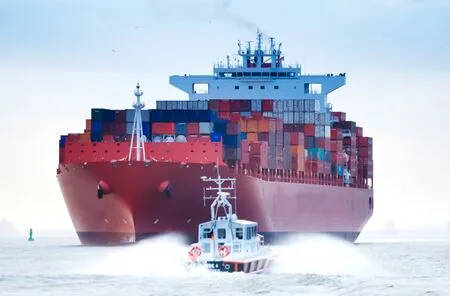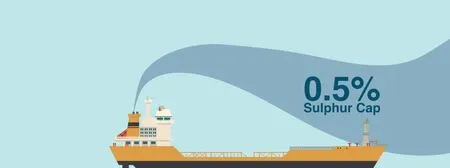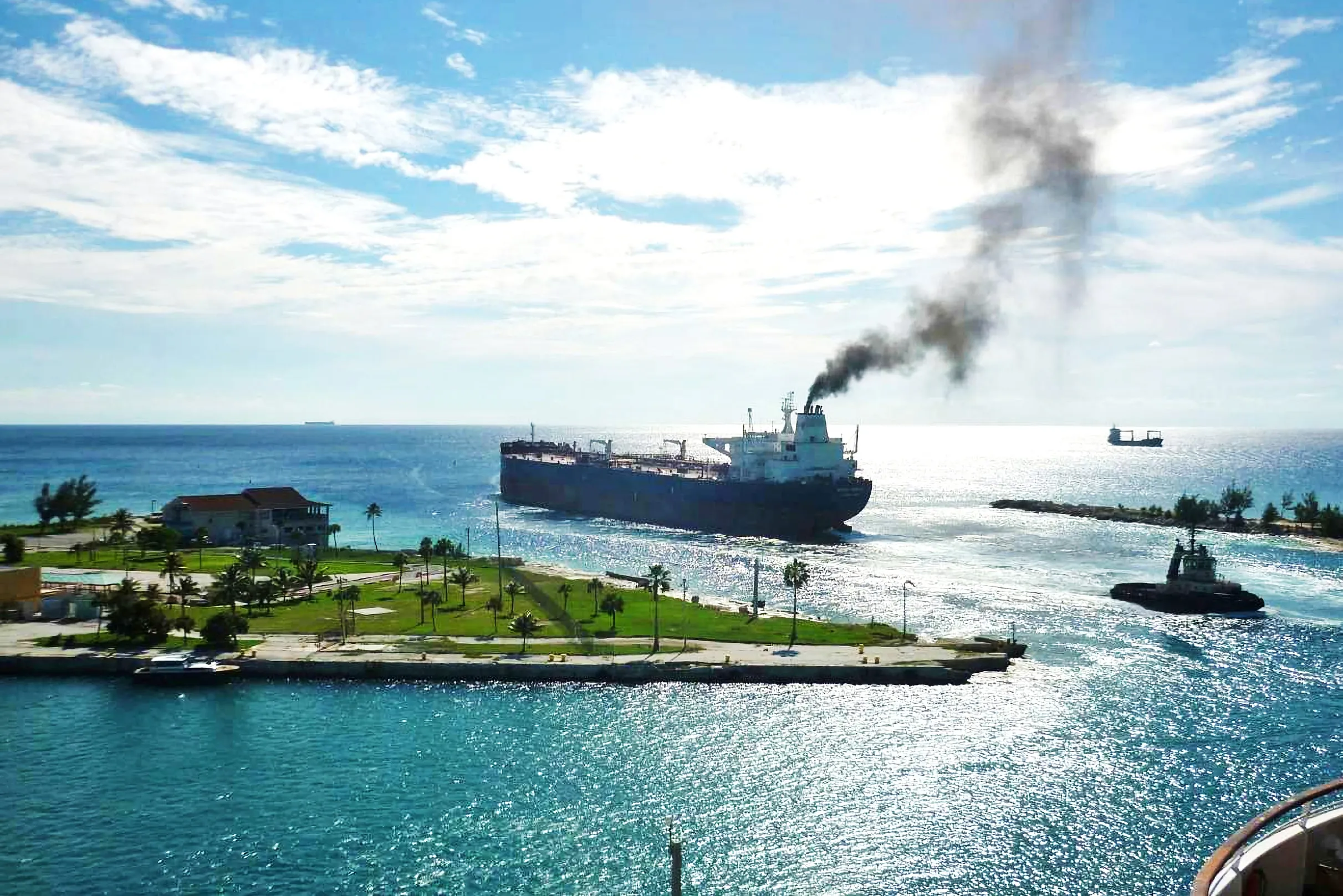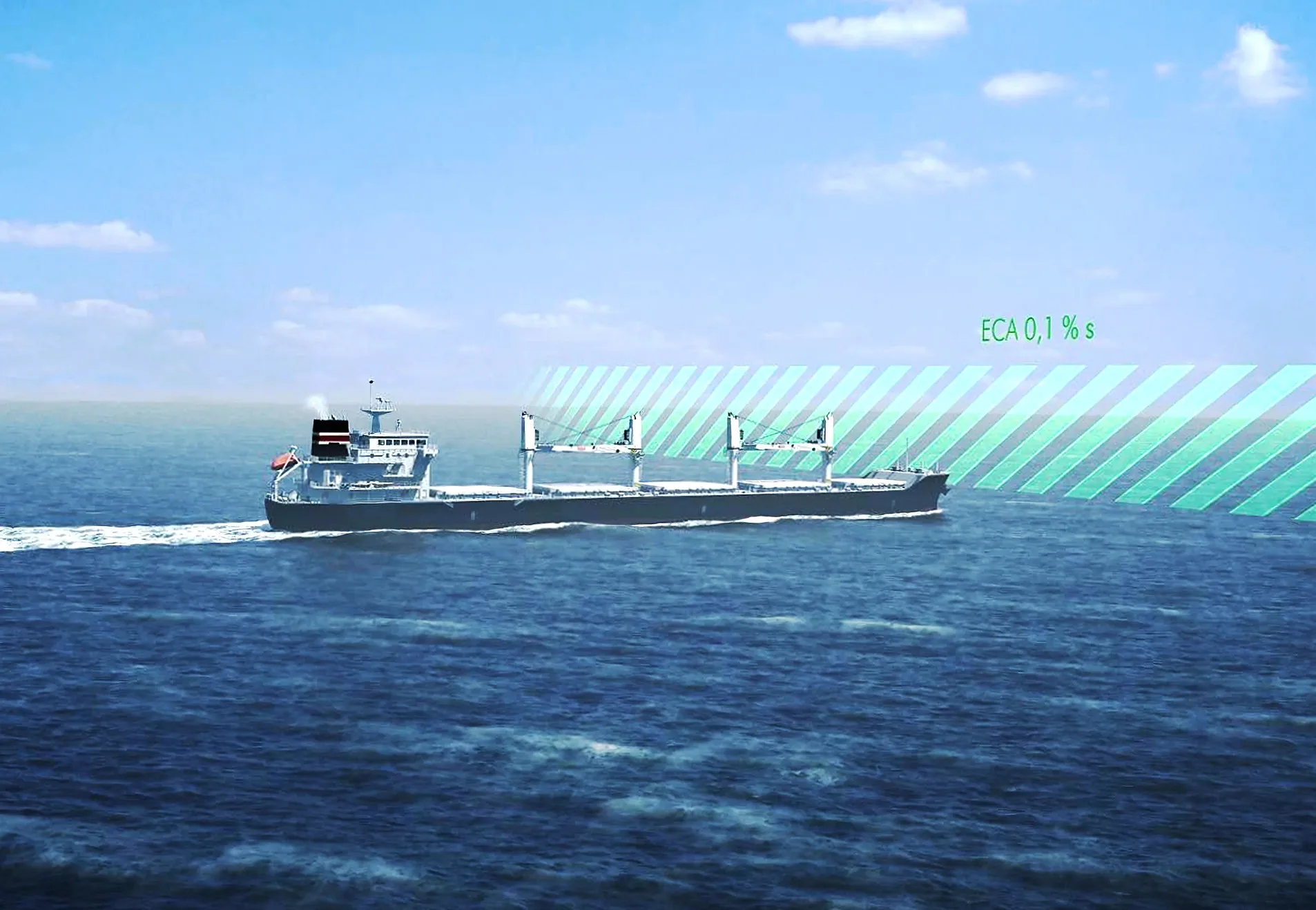China Fully Prepared for IMO Sulfur Cap
2019-12-03LiQin
Li Qin

The Maritime Safety Administration issued “2020 Implementation Plan for Global Marine Fuel Sulphur Restrictions”,announcing China will formally implement IMO sulfur cap on January 1, 2020, and specify relevant matters.This fully demonstrates the positive attitude of China's implementation of the international conventions, and also shows that, after the establishment of the system practice of the ship emission control area in the last four years and the establishment of the low-sulfur fuel supply system for ships, China should have the preparation and stamina for the IMO sulfur cap.
Have a Distinct Attitude
The“2020 Implementation Plan for Global Marine Fuel Sulphur Restrictions” issued by China stipulates that from January 1, 2020,international sailing ships shall use fuel with sulfur content not exceeding 0.50% m/m when entering the waters under the jurisdiction of PRC,and from January 1, 2020, if the international sailing ship enters the air pollutant emission control area of inland waterway ships in China, it shall use fuel oil with sulfur content not exceeding 0.10% m/m. As of January 1, 2022, if an international sailing ship enters the waters of Hainan, where the air pollutant discharge control area of Chinese ships is under control, the sulfur content shall not exceed 0.10% m/m. Starting from March 1, 2020,international ships entering the waters under the jurisdiction of PRC shall not load self-used fuel with sulfur content exceeding 0.50% m/m. As of January 1, 2020, ships shall not discharge washing water from the open exhaust gas cleaning system in the air pollutant emission control area of Chinese ships.
Industry experts said that green shipping has always been the work promoted by China, and actively responding to the sulfur restriction of IMO is not only the result of China's fulfilling the obligations of international maritime laws and regulations, but also the necessity of promoting the cause of environmental protection in China.
As early as 2015, China issued the "Pearl River Delta, Yangtze River Delta, Bohai Rim (Beijing,Tianjin and Hebei) waters ship emission control area implementation plan”. On January 1, 2016, three major waters of the Pearl River Delta, Yangtze River Delta and Bohai Rim formally implemented the ship emission control area system.Since then, with the introduction of a stricter system of ship emission control areas in China and the implementation of emission reduction control standards for the subsequent stage in Shanghai, Shenzhen and other areas ahead of time, the emission requirements of ship fuel in China's ship emission control areas have become more and more stringent.In some areas, the sulfur content of ship fuel has been reduced from not exceeding 0.5% m/m to not more than 0.1% m/m. Meanwhile In 2005, the scope of ship emission control area was also increasingly expanding.
Industry experts pointed out that China faced great pressure when it introduced the ship emission control zone system in 2015. At that time, many people in the industry questioned: is it necessary for China to become the first developing country to set up a ship emission control area? Should more attention be paid to the negative impact of the resulting increased costs on the relevant industries? However,it seems that the establishment of ship control area not only has good environmental protection effect,but also does not have a serious impact on people's livelihood. More importantly, the practice of China's ship emission control zone system in recent years has actually become the best preparation for responding to the IMO sulfur cap.


For the IMO sulfurcap,Indonesia, India and other countries once considered delaying the implementation or treating domestic and international sailing ships differently, due to reasons such as the possible sharp increase in logistics costs. As China is more determined to promote environmental protection and has more experience in practice, so it can deal with sulfur restrictions more calmly.
Fully Prepared
As most ships choose to use low sulfur oil to meet the requirements of sulfur restrictions, China arranged the supply guarantee and joint supervision of marine low sulfur oil rather early. In 2017, China put forward and issued policies to promote the establishment of the basic supply system of marine low sulfur fuel to guide domestic refineries and chemical enterprises to produce compliant marine low sulfur oil, dredge the tripartite information channels of "production and marketing", and ensure the supply of marine low sulfur oil.China allowed oil supply enterprises to operate across regions, sped up the revision of marine fuel standard system, completed the research and revision of related standards and specifications such as "Marine Fuel", "General Diesel" and "Ship Fuel Supply and Receiving Fuel Procedures and Testing Methods".
China is in the process of establishing a national unified ship fuel reporting information system prior to the implementation of the global sulfur cap.
Large oil enterprises in China have also begun to produce and sell low sulfur oil. According to sources,PetroChina, Sinopec, CNOOC and Sinochem plan to increase the production capacity of low-sulfur fuel oil to 18.15 million tons per year by 2020.
Some pilot free trade zones have also launched low sulfur oil action plans for 2020, e.g., Zhejiang Pilot Free Trade Zone, relying on the existing and ongoing petrochemical industry foundation in Zhoushan,produces stable and reliable low sulfur oil with price advantage, and prepares to build a low sulfur oil supply center in Northeast Asia.
Shipping enterprises are the main market players to deal with the sulfur cap, and an industry source warned that the choice of a shipping enterprise using low-sulfur oil must pay attention to the purchase of low-sulfur oil from the regular supplier, carry out the necessary training for the crew and assess whether the modification of the fuel system and the oil tank cleaning are to be carried out. The relevant supporting manufacturers shall maintain close communication with shipbuilding enterprises and shipping enterprises and provide corresponding technical support. “With the advance layout of the country, plus cooperation of the parties concerned,the response work of the sulfur restrictions will certainly be carried out in an orderly way, not only can the effective performance of China be promoted, but also the progress of the environmental protection of China can be further promoted," the industry source said.

